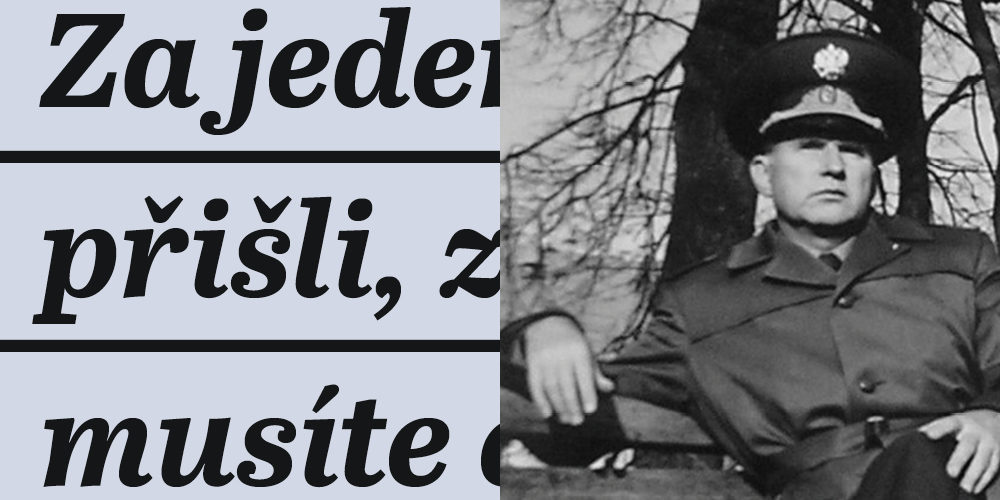
In the autumn of 1968, thirty-year-old Soviet officer Eduard Vorobyov was to start studying at a prestigious military academy. But, at that time, he was serving in East Germany, and on August 19th, an unexpected order arrived at the garrison – to stay put; he had a combat assignment waiting for him. That mission was the occupation of Czechoslovakia. Shortly after midnight on August 21st, Captain Vorobyov’s unit crossed the border in the Ore Mountains. He was convinced that he was doing the right thing, saving a socialist country from Western imperialists and capitalism.
Eduard Vorobyov returned to Czechoslovakia in 1987 as General of the Central Group of Troops. After two decades, the situation had changed. From the highest Soviet places came the instruction not to interfere in local affairs, to avoid any conflict with the local population. When the communist regime collapsed in Czechoslovakia at the end of 1989, Soviet soldiers stayed in the barracks.
Eduard Vorobyov took a pragmatic approach to the subsequent removal of the large military contingent: “During the negotiations on the withdrawal, relations improved. My understanding was that there was sort of an emotional outburst. We were told:
‘We have suffered from shame for twenty years, we have been occupied for twenty years. In one day you came, in one day you must go.’ I understood perfectly.”
Eduard Vorobyov left Czechoslovakia as the “last Soviet soldier” on 27 June 1991.
Departure
In the 1980s, communist regimes were collapsing economically and socially. Falling behind the free world could no longer be disguised, and citizens invoked their rights. Rumors of change were coming from the Soviet Union in the era of Mikhail Gorbachev. Our country had been ruled for a second decade by the same set of normalization apparatchiks, who until then had devotedly listened to their comrades from Moscow, but did not want to hear about so-called perestroika – reconstruction.
When the totalitarian regime in our country began to collapse in November and December 1989 under the enormous onslaught of civil unrest, almost 80,000 Soviet soldiers, on whose threat the local regime relied, remained in the barracks – they were ordered not to intervene. In February 1990, the new president, Václav Havel, arrived in Moscow for an official visit. The Soviets apologized for the occupation in August 1968, and the foreign ministers concluded an agreement on the withdrawal of Soviet troops from Czechoslovakia. The negotiations were attended by the MP and musician Michael Kocáb. On 24 June 1991, to celebrate the event, he organized a concert with his band Pražský výběr in Prague’s Sport Hall, with the world-famous rocker Frank Zappa as a guest, and the whole show ended with the symbolic departure of a dummy of a Soviet soldier in a helicopter. Three days later, the real “last Soviet soldier,” Eduard Arkadyevich Vorobyov, the commander of the Central Group, left our country. In total, 73,500 Soviet soldiers, 39,000 of their family members, 1,220 tanks, 2,500 infantry combat vehicles, 105 aircraft, 175 helicopters and 95,000 tons of ammunition left Czechoslovakia.



